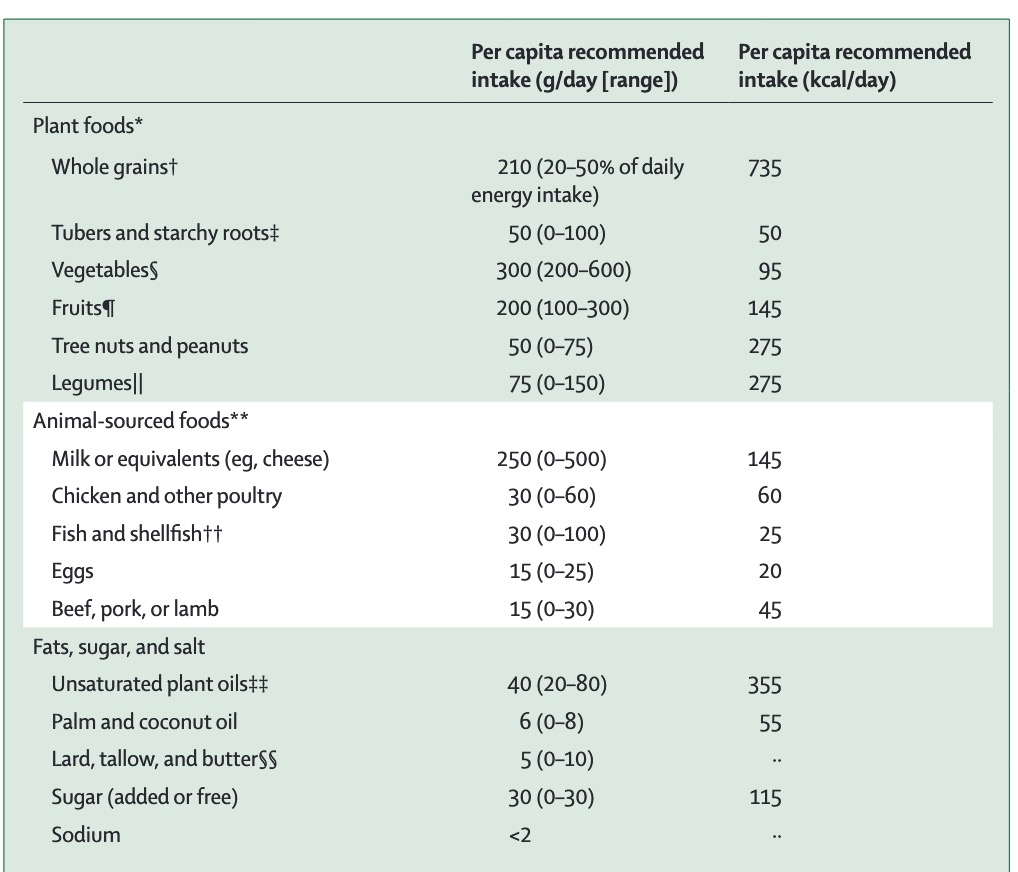The gall of these people, calling this a Planetary Health Diet and presuming to speak for everyone on the planet.
In the section labelled Panel 3, "The planetary health diet and health—evidence for causality"
Ideally, evidence for the effects of specific foods, nutrients, and overall diets on major health outcomes would be based on large, randomised trials with disease and functional endpoints in representative populations across the world. However, this type of evidence is scarce because such trials require many thousands of participants, many years—or even decades—of follow-up, and sustained high adherence to assigned diets. These requirements are neither feasible nor ethical, and randomised trials not meeting these criteria can easily yield misleading, null, or negative results. Therefore, for studies of diet and other behavioural and environmental exposures, frameworks to assess causality, such as the Bradford Hill criteria,66 have been developed.
"We can't do science to prove what we're saying, so we've made something up instead."
For dietary factors, these frameworks typically include reproducible evidence from prospective epidemiological studies (eg, following a cohort over time) in combination with randomised trials that include intermediate risk factors as outcomes.67 Rigorous control of confounding factors by study design and statistical methods is essential.
If only epidemiological studies were done, then what "rigorous" control could there have been?
The far higher ratio of polyunsaturated fatty acids to saturated fatty acids in these plant foods compared with red meat and dairy products predicts lower LDL cholesterol; this prediction was confirmed in a meta-analysis of randomised trials of red meat intake.
And what good does lower LDL do?
As described in the main text, in multiple large cohort studies with careful adjustment for smoking and other potentially confounding variables, participants with diets most consistent with the PHD have had reduced risks of many major health outcomes, including type 2 diabetes, cardiovascular disease, and total mortality.
"Adjustment" says it all.
This is so insidious.

